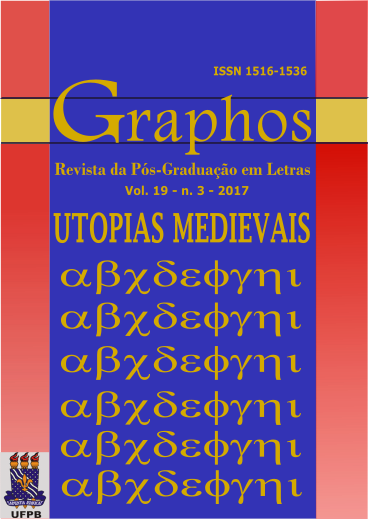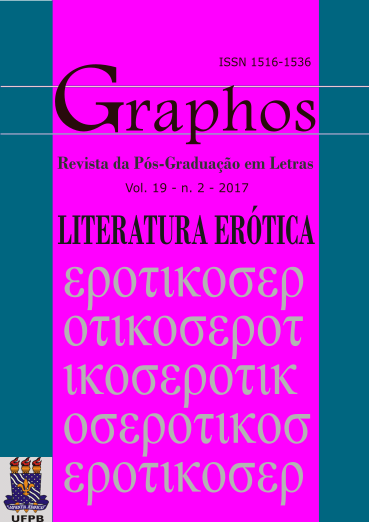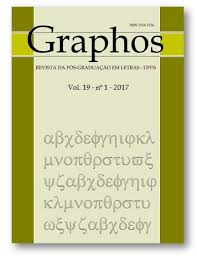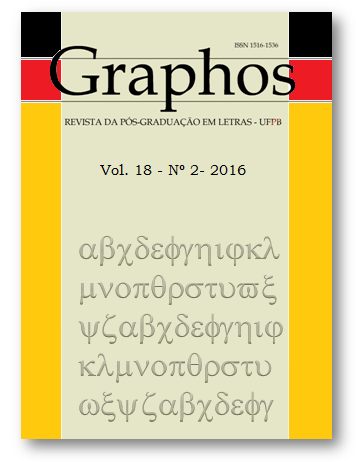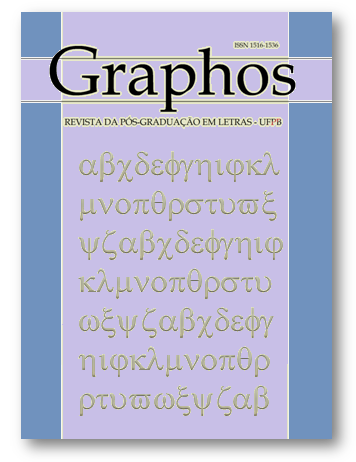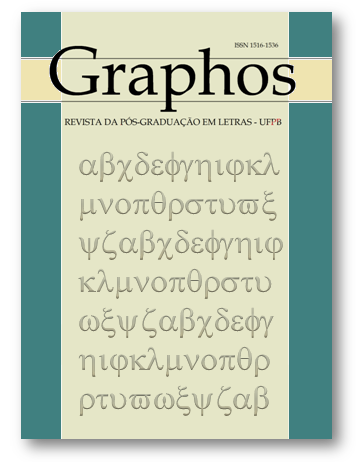Archives
-
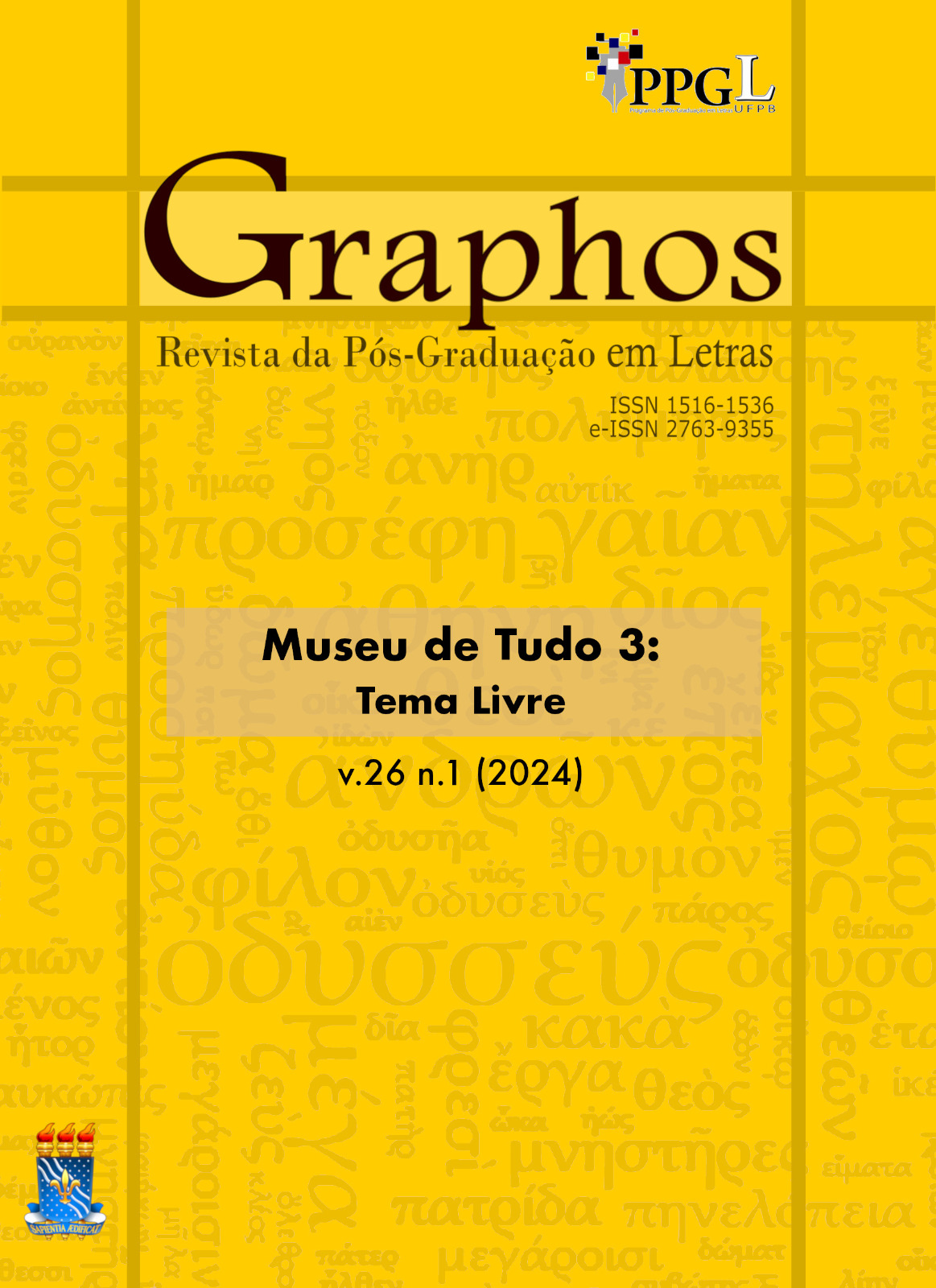
Museu de Tudo 3: Tema Livre
Vol. 26 No. 1 (2024)With this new issue of the "Museum of Everything" series, which is dedicated to publishing articles in the "Ahead of print" system, Revista Graphos is once again seeking to streamline the editorial process, since the articles will be published after evaluation by the referees and their due reviews. This issue will especially provide a space of visibility for research that does not fit the calls for dossiers with specific scopes. In this way, contributions on different themes will be accepted, with the sole condition that they fall within the focus of the journal, namely: discussions in the areas of literature and culture, theory and translation. Graphos thus continues to provide opportunities and strengthen dialogues between the different lines and conceptions of literary studies. With this issue, we hope to foster this series which, due to its thematic breadth, encourages the publication of original works from different theoretical and critical directions. Volume organisers: Ana Cristina Marinho Lúcio (UFPB) Marco Valério Classe Colonnelli (UFPB) -
Dossiê Modalidades, materialidades e condições de circulação e de transferências culturais das literaturas.
Vol. 25 No. 3 (2023)A revista Graphos abre chamada para um número temático Modalidades, materialidades e condições de circulação e de transferências culturais das literaturas. Busca-se, com este dossiê, trazer à luz as atuais reflexões em pesquisas na interface interdisciplinar da sociologia da cultura, da análise quantitativa e qualitativa de processos de transferências culturais e modalidades de circulação das literaturas, levando também em consideração acervos físicos e digitais, catálogos, estudos bibliográficos e repertórios no âmbito tanto nacional quanto latino-americano e transatlântico.
A proposta está centrada na reflexão e na releitura de momentos da História literária brasileira, em um contexto transnacional e globalizado. O enfoque recairá sobre análises quantitativas e estudos qualitativos sobre os principais atores individuais e institucionais das transferências culturais transatlânticas e os processos de transferência e circulação de textos e livros em língua estrangeira, com o objetivo de analisar a extensão, as variações e as modalidades temporais, espaciais e sociais desses processos. Dentro desse recorte, será dado especial interesse à sociologia da cultura para compreender o papel de tradutores e tradutoras, editores e editoras, do meio literário e jornalístico, bem como das instituições acadêmicas, político-culturais e econômicas como mediadores das transferências e circulações literárias.
A partir dessa contextualização, que se baseia nos conceitos teórico-metodológicos interdisciplinares de transferência cultural (Espagne, 2009; Charle, Lüsebrink, Mix, 2017; Jorgensen, Lüsebrink, 2021) e de circulação (Bourdieu, 2002; Casanova, 1999; Sapiro, 2012), serão aceitas contribuições envolvendo estudos de caso e análises quantitativas e qualitativas. Serão igualmente bem-vindas contribuições que combinem ou discutam os conceitos teórico-metodológicos acima referidos e suas articulações com outros métodos advindos, por exemplo, dos Estudos da Tradução, da Sociologia, da Antropologia, da Etnologia ou da História da Arte, envolvendo por vezes questões políticas, dilemas ou (des-)construções.
Essas amplas perspectivas e abordagens propostas pretendem revelar a visualização e a problematização dos complexos entrelaçamentos e hibridações nas histórias da literatura e da tradução, e nas condições culturais/sociológicas de literaturas em língua estrangeira.
Organizadoras: Marta Pragana Dantas (UFPB); Wiebke Röben de Alencar Xavier (UFRN)
-
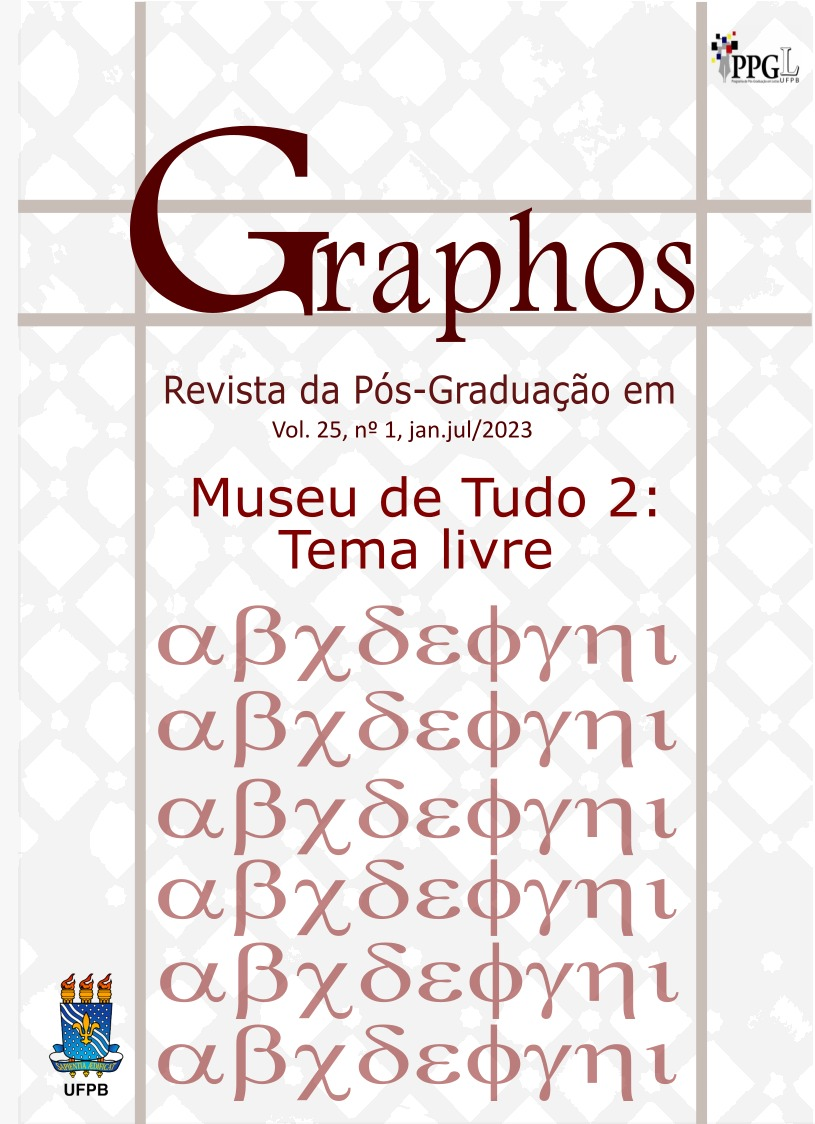
Museu de Tudo 2: Tema Livre
Vol. 25 No. 1 (2023)Com esse novo número da série "Museu de tudo", a qual se dedica a publicar artigos no sistema "Ahead of print", a Revista Graphos busca uma vez mais agilizar a o processo editorial, dado que os artigos serão publicados imediatamente após avaliação pelos pareceristas e suas devidas revisões.
Esse número especialmente é produto de uma alta demanda recebida na chamada do ano anterior, forte indicativo do quanto os pesquisadores estão ávidos por um espaço em que possam dar visibilidade a pesquisas que não se adequam naquele momento às chamadas de dossiês com escopos específicos. Assim, foram aceitas contribuições sobre diferentes temáticas, com a única condição de que estivessem inseridas no foco da revista, a saber, discussões nas áreas de literatura e cultura, teoria e tradução.
A revista Graphos continua, assim, a oportunizar e a fortalecer os diálogos entre as diferentes linhas e concepções dos estudos literários, e, espera, com esse número, fomentar essa série que, por sua amplitude temática, incentiva a publicação de trabalhos originais e de diversas direções teórico-críticas.
Organizadores do volume:
Elaine Cristina Cintra (UFPB)
Marco Valério Classe Colonnelli (UFPB)
-
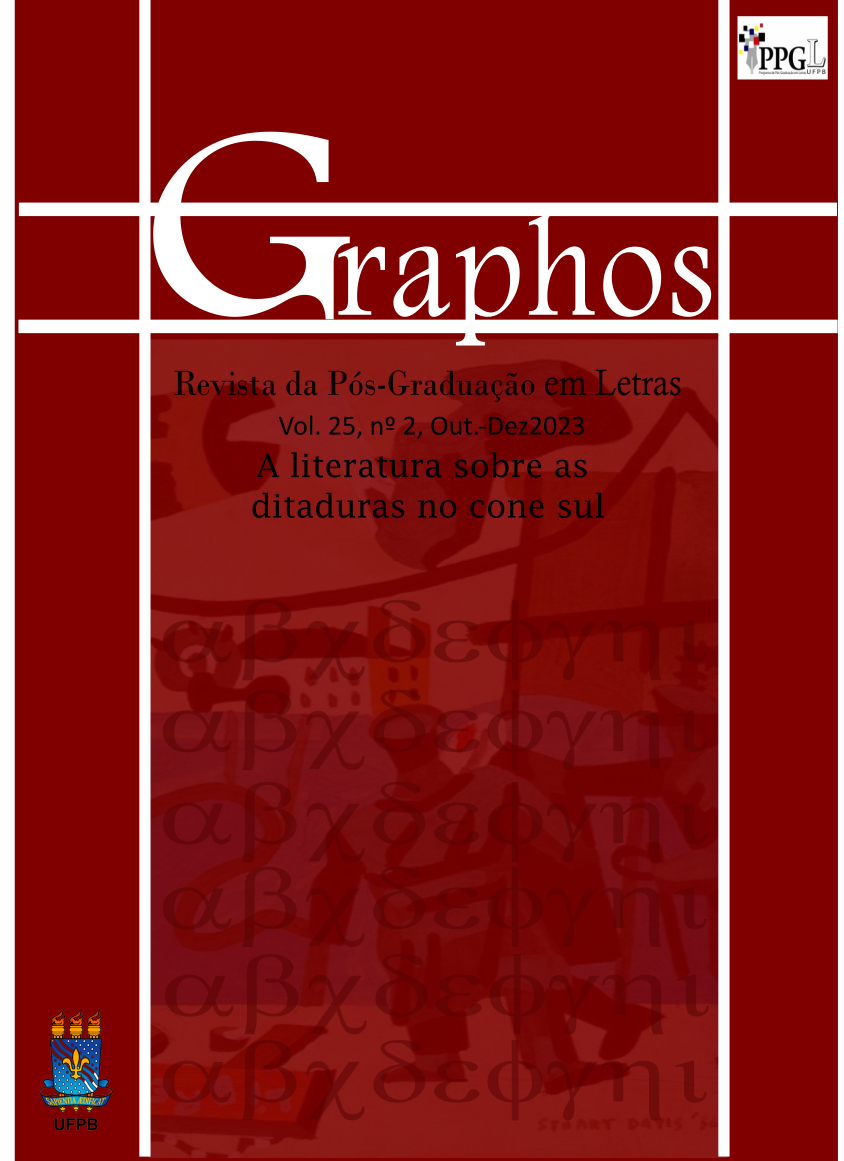
Dossiê "A literatura sobre as ditaduras no cone sul"
Vol. 25 No. 2 (2023)A revista Graphos abre chamada para um número temático sobre a literatura do Cone Sul – Brasil, Uruguai, Argentina e Chile – que aborde o autoritarismo e suas conexões com outros discursos totalitários no ensaio e na ficção. Serão aceitos artigos que versem tanto sobre as diversas formas sob as quais os estados-nação com forte evolução autoritária têm abordado esteticamente o exercício da escrita, quanto sobre as divergentes ou opostas a elas. Nesse sentido, serão bem-vindos estudos centrados nas formas estéticas ora de cunho autoritário ora destinadas ao fortalecimento da memória coletiva e da democratização da cultura, seja desmistificando, seja dando espaço à expansão da consciência individual e à mobilização social; ensaios históricos e das ciências sociais que, por um lado, abordem as estratégias imagéticas utilizadas pela herança do autoritarismo e, por outro, visibilizem procedimentos utilizados no processo de democratização, tais como: o papel da publicidade na formação e consolidação de um modelo de sociedade civil; os critérios estéticos e ideológicos que sustentam a formulação do novo cânon literário e a sua difusão nos meios de comunicação e nos currículos do sistema educativo; a revisão do autoritarismo nas belles lettres através das histórias críticas das literaturas nacionais e das ações de consagração editoriais, tanto de teor permissivo quanto crítico com as pautas legais e econômicas dos regimes totalitários, que evidenciem políticas de formação de leitores.
Organizadores: Leonardo Senkman (Universidade Hebraica de Jerusalém –UHJ) e María del Pilar Roca Escalante (Universidade Federal da Paraíba - UFPB)
-
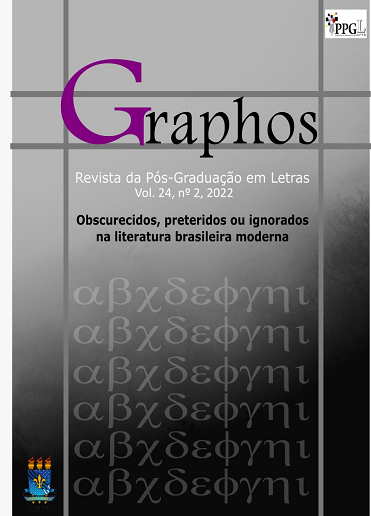
THE OBSCURED, NEGLECTED OR IGNORED IN MODERN BRAZILIAN LITERATURE
Vol. 24 No. 2 (2022)As the Brazilian modernization process is invariably controversial and diffuse, given that the idea of modernity is necessarily ambiguous, in the absence of greater historical precision, the “Semana da arte moderna” is chosen as a landmark, whose centenary requires revision, as has already been widely done. Without disregarding the relevance that the landmark acquired for our historiography, it is important to highlight other voices before or after the event held at Theatro Municipal de São Paulo, to rethink in a broad spectrum the consolidation of authors and works relegated to the background and that, even considered at a certain point, they ended up being passed over as bearers of illegitimate discourses. The dossier proposed here, in line with the historical materiality of the works, included expressions that, due to their authorial peculiarities, the currents of reading at the time of their publication, the repercussion of authorial figures, or even for indefinable reasons, do not resonate today as manifestations valued, as if their repercussions were undue or simply should not be recorded as literary records. They are the deprecated, forgotten or obscured in Brazilian literature, which, although they do not appear today as unavoidable references, call for a reexamination, which implies rethinking which parameters should guide the reading of modern works and dimensioning in perspective the positions that animated the reception of our literature itself, as if its repercussions were undue or simply should not be registered as a literary record.
-
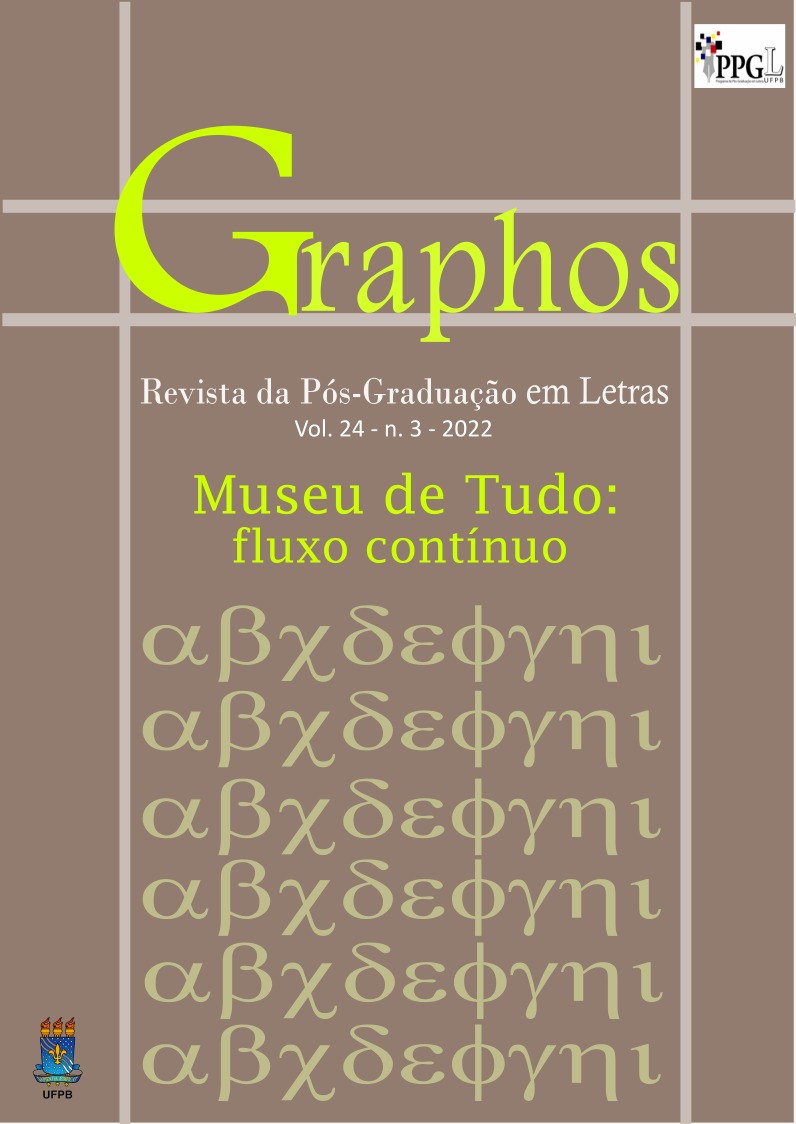
Museu de Tudo 1: Tema Livre
Vol. 24 No. 3 (2022)
Sob o título Museu de Tudo: tema livre, a Graphos passa a publicar, uma vez por ano, um número reunindo artigos sobre diferentes temáticas dentro do escopo da revista, voltado para discussões nas áreas de literatura e cultura, teoria e tradução, pelo sistema "Ahead of print". Essa nova modalidade imprime uma maior agilidade no fluxo editorial, uma vez que os artigos aprovados pelo sistema double blind são publicados imediatamente após a finalização do fluxo editorial, sem que seja necessário aguardar o fechamento do volume..Dentro dessa diretriz, essa primeira edição da série Museu de Tudo: tema livre foi continuamente alimentada até o encerramento das submissões em dezembro. A edição aqui publicada é o resultado dessa primeira experiência, que já se projeta como uma das possibilidades de publicação na revista.
É importante informar que o número de submissões excedeu o esperado, e, por essa razão, os últimos textos que chegaram foram direcionados para o segundo número de Museu de Tudo 2, a ser publicado em 2023.
A Graphos continua mantendo a regularidade de três números anuais, dois deles sendo dossiês temáticos e o terceiro, Museu de Tudo: tema livre.
-
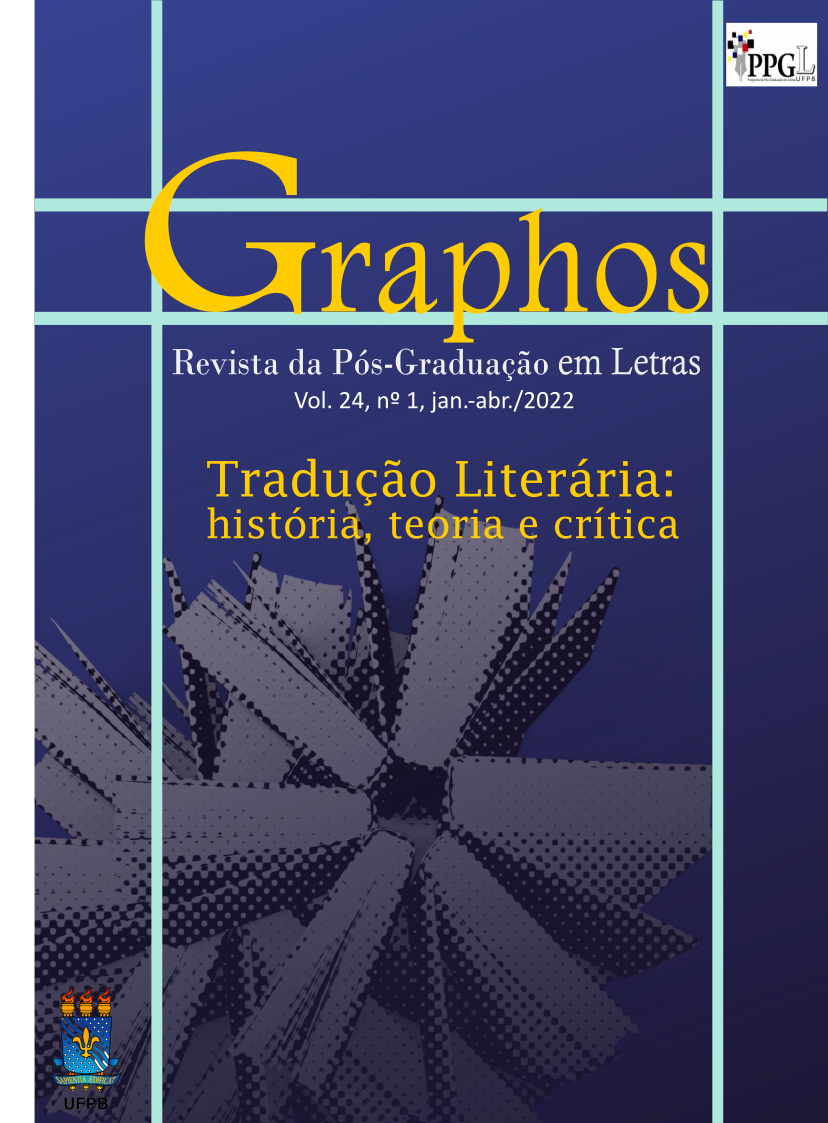
Literary translation: history, theory and critics
Vol. 24 No. 1 (2022)The debate on translation has always been present among us, dating back to Cicero (Sec I, BC). However, it is from the second half of the 20th century onwards that translation has emerged as a disciplinary field, with James Holmes' paper as one of its epistemological landmarks. In addition to defining Translation as an object of study, Holmes named the emerging field Translation Studies, which seems to have been accepted by the Brazilian academic community, although, to a lesser extent, the term Tradutology is also used. Holmes' mapping has been expanded, and we now have a vast academic production in the field, both in theoretical and applied terms, which led Echeverri (2017) to point to a new moment, which he named as the metaturn, that is, a moment of introspection in which the discipline looks at itself through mappings and reflection as a form of evaluation and planning.
Translation Studies, especially Literary Translation Studies, which is the focus of this dossier, has found fertile soil in Brazil and in other countries and so this Dossier opens space for research that seeks to understand how translation of literary texts and Literary Translation Studies have been organized and that identify the critical and theoretical currents of literary translation, the agents - be them researchers, theoreticians, translators, publishers, funding agencies - , the norms that govern literary translation as well as the circulation of translated literary works. In short, it brings together mappings that contribute to the construction of the history of literary translation in Brazil (or in other countries) in order to guide future research and steps.
-
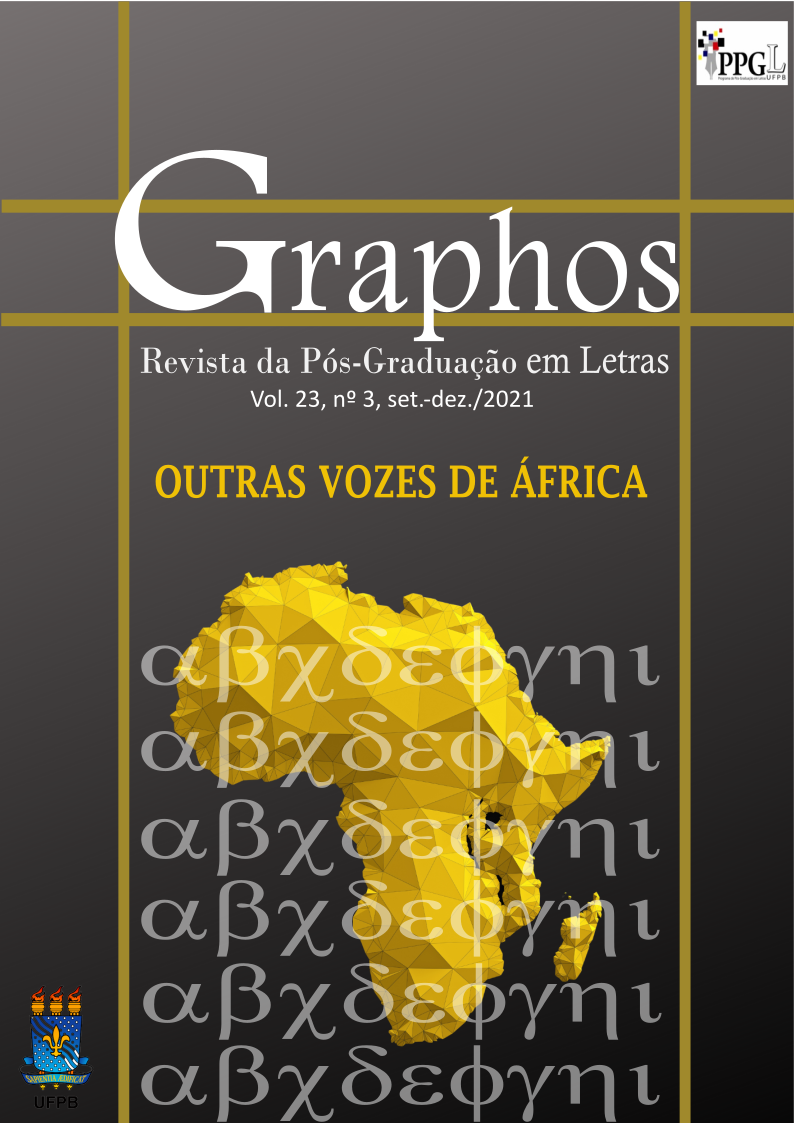
Other voices from Africa
Vol. 23 No. 3 (2021)The issue Other voices from Africa is composed of research studies by Brazilian and foreign researchers working on the literary output of authors from African countries in languages other than Portuguese. Therefore, it proposes to disclose “other Africas,” that is, other literary production from the African continent not originally published in Portuguese, but sometimes translated into Portuguese, giving visibility to studies that analyze works by writers from countries, such as Nigeria, Senegal, South Africa, Egypt, Ghana, Kenya, among others. Moreover, the articles focus on themes relevant to post-colonial studies; however, not restricted to them, they also analyze the representation, in literary works, of the social markers of difference, such as class, gender, sexuality, generation, among others, separately or in their intersectionality.
Organizers: Vanessa Neves Riambau (Universidade Federal da Paraíba, Brazil), Orison Marden Bandeira de Melo Júnior (Universidade Federal do Rio Grande do Norte, Brazil); Ana Mafalda de Morais Leite (Universidade de Lisboa, Portugal).
-
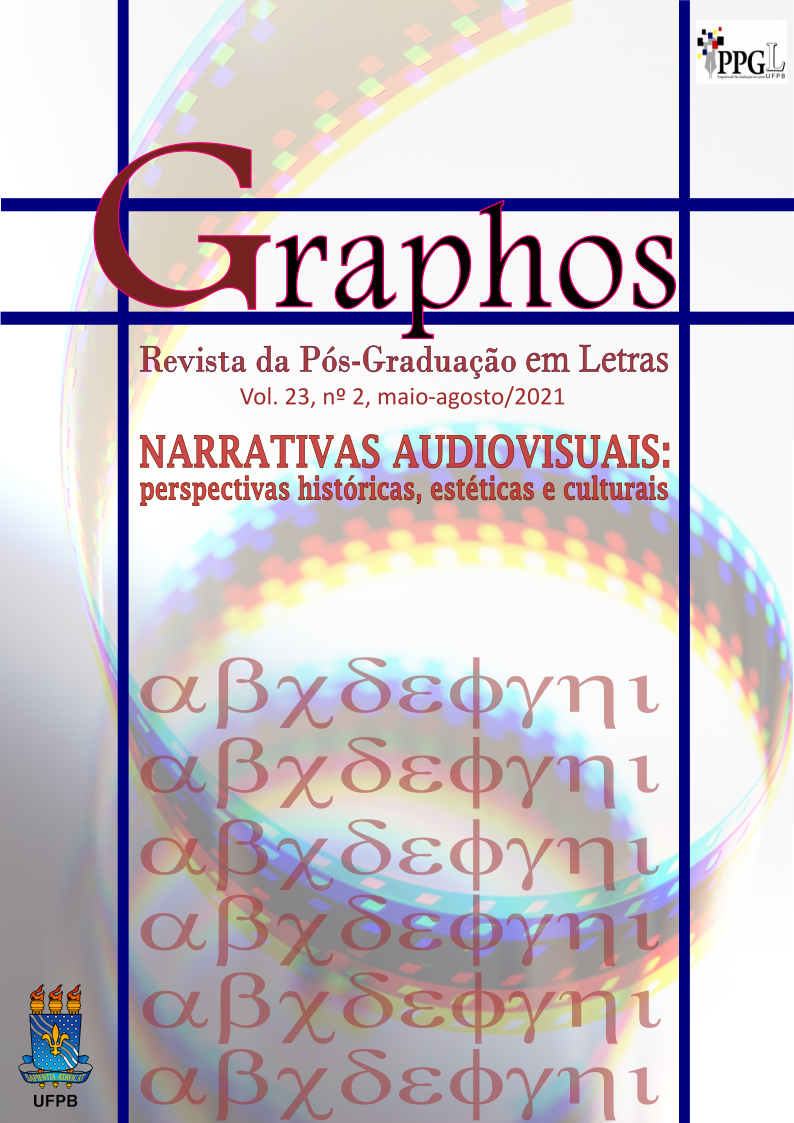
Audiovisual Narratives: Historical, Aesthetical and Cultural Perspectives
Vol. 23 No. 2 (2021)It would be hard to refute the relevance of image in the contemporary context. Increasingly more ubiquitous and part of our routines, we are all the time blasted by images, we carry images in our mobile phones, and we keep sharing and deleting images. There are so many of these images that it becomes all the more pressing to ascertain, in the filmic and audiovisual context, creations that offer themselves as instigating, singular and innovative – be that related to matters of authorship, reception, identity, subjectivity and performance. This dossier gathers texts which contribute to a perspective on audiovisual narratives in their many facets: historical, aesthetical and cultural, in such a way that we see ruptures, unsettlements and experimentations. The articles also address audiovisual narratives in dialogue with other artistic expressions and media constellations.
Organizers: Alessandra Brandão (Universidade Federal de Santa Catarina, Brazil); Lourdes Martínez-Echazábal (University of California, Santa Cruz – UCSC, USA); Luiz Antonio Mousinho (Universidade Federal da Paraíba, Brazil).
-
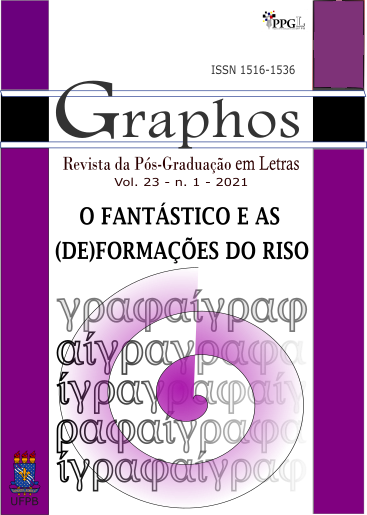
The fantastic and the (de)formation of laughter
Vol. 23 No. 1 (2021)This dossier is about the fantastic and its interfaces with laughter, which extends more widely to caricature, grotesque, hyperbole, comic, burlesque, irony, satire, parody and other related forms that produce the distortion of laughter in fantastic narratives. Papers that dialogue with other languages, such as cinema, comic, photography and painting are also welcome, as long as they follow the proposed theme.
The multiple theoretical aspects of the fantastic – from the first effective systematizations by Tzvetan Todorov (1970), through Irène Bessière (1974), until the reflections of David Roas (2014) – have allowed an understanding of how this literary mode relates in different ways, either in terms of content or form, to literary aesthetic phenomena such as the wonderful, the strange, the fantasy, the grotesque and the absurd. We must say that the last two, not seldom, flow into laughter; but to what extent can humor manifest itself in fantastic narratives?
In 1940, the French poet André Breton published L'humour noir, showing interest in a kind of tragic comicality that focused on resistance and criticism of social conventions. Breton’s anthology included writers directly associated with the fantastic, such as Franz Kafka, Villiers de L'Isle-Adam, Charles Baudelaire, Edgar Allan Poe, among others. Poe's critical fortune, for example, includes a significant list of studies that encompass satire, parody, irony and "diabolical humor", which is present throughout his work. Recently, the Publishing House 34 edited Antologia do humor russo (2019), organized by Arlete Cavaliere. In its preface, Cavaliere points out that the hue of laughter in Russian literature is "irreverent and critical (...) unsubmissive and challenging" (p. 9). It is precisely this tone of comedy that is present in classic Russian fantastic narratives, and their fullness is achieved by Gógol, in "The nose" (1836) and by Dostoiévski, in The double (1846). In another perspective, Georges Desmeules (1997) highlights this discussion when he refers to laughter as a hidden facet of fantastic narrative. For him, humor is an ambiguous reality from which both comic and tragic can emerge.
-
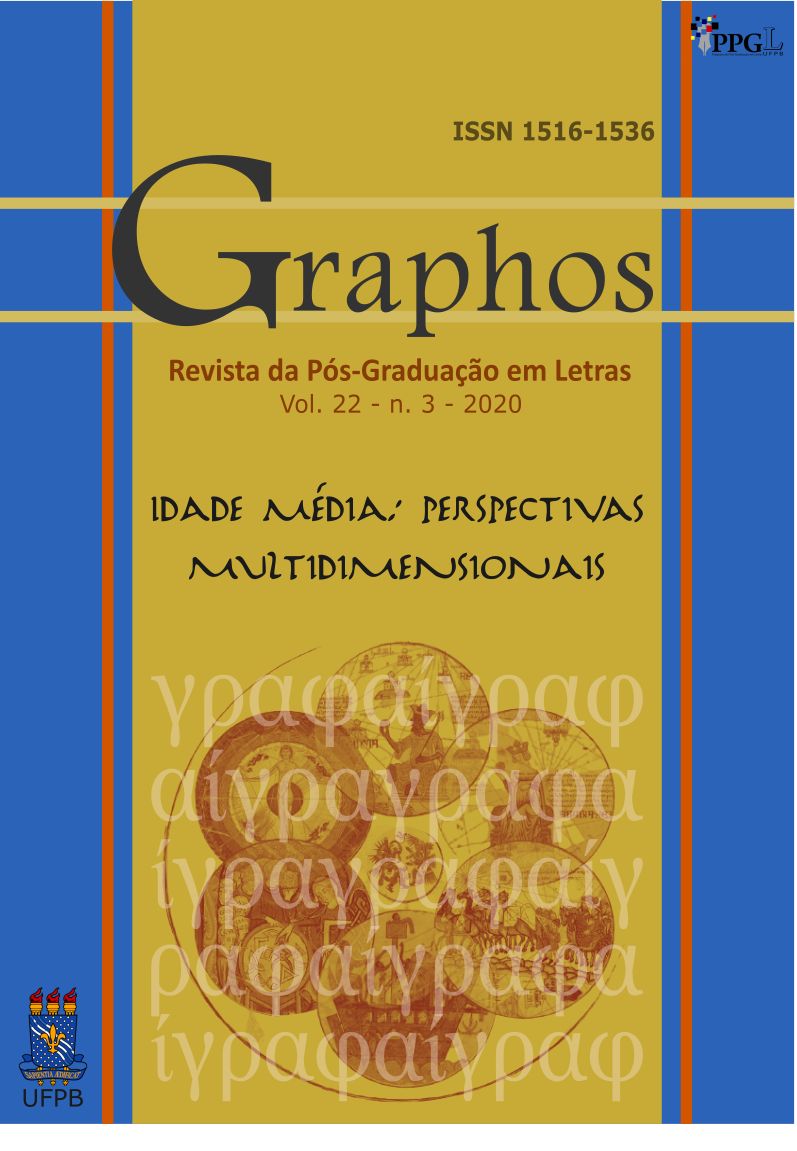
Middle Ages: Multiple Perspectives
Vol. 22 No. 3 (2020)This dossier proposes to discuss the multidimensionalities of the Middle Ages, which are often made invisible by traditional historiography, particularly spatiality, temporality and gender relations. Focusing on the articulation with Literature, the dossier seeks to discuss the importance of the notion of decoloniality for Medieval Studies, in the sense of deconstructing the patriarchal-racist-and-scriptocentric-based prejudices built by the rhetoric of modernity/coloniality. Thus, the call intends to center discussions on research that promotes displacement by addressing any of the above-mentioned dimensions. Priority will be given to submissions that include: 1) authors and/or works related to non-European spaces (space dimension); 2) the permanence of medieval elements across time, as it is the case of the neotrovadoresque movement in the 20th century, or even the idea of Long Middle Ages, as proposed by Jacques Le Goff (time dimension); and 3) the rich and varied writings of women in the various fields of knowledge and their reach in the Middle Ages and beyond (gender dimension). In short, the dossier intends to gather contributions aimed at productions, themes or tropos that have remained on the fringes of the canon of the History of Western Literature as far as the Middle Ages are concerned.
This issue was supported by the Research Support Foundation (FAPESQ), Grant Term No. 045/2019.
-
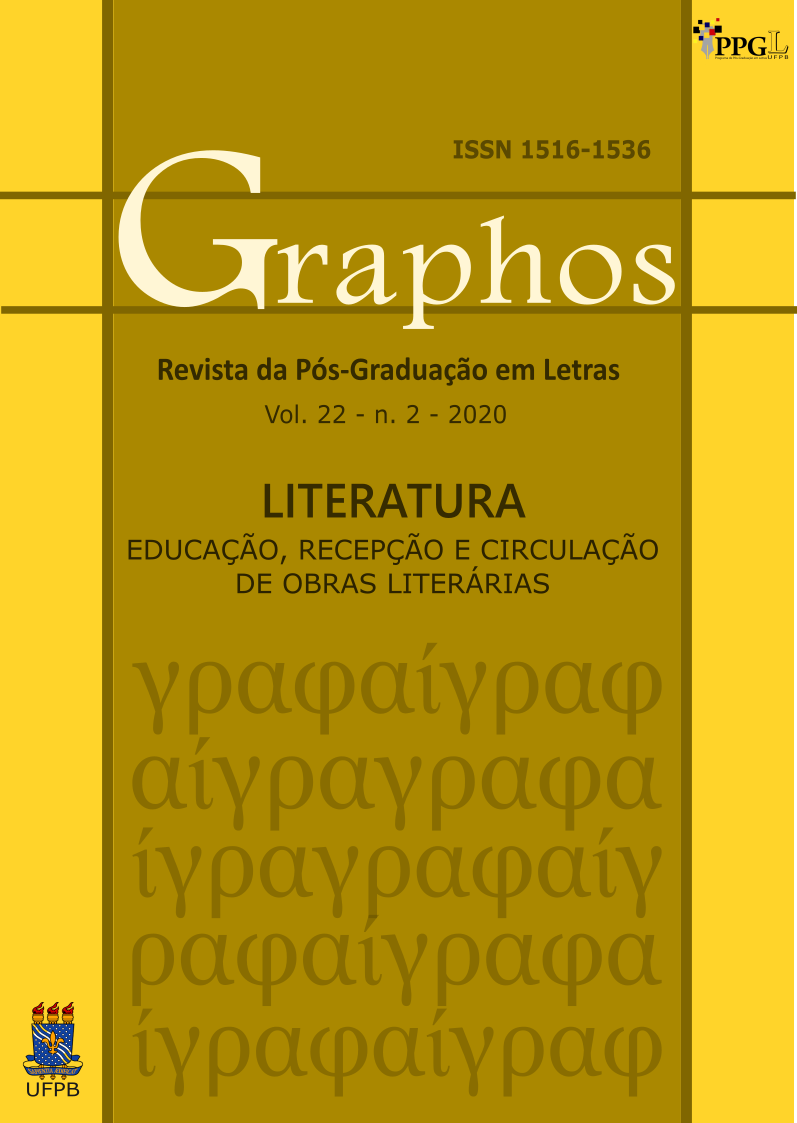
Literature: Education, Reception and Circulation of Literary Works
Vol. 22 No. 2 (2020)This issue of Graphos presents papers that address the following topics: i) public policies and the right to literature (democratization of literary reading); ii) the connections between literature, literary reading and literary reader education (space, definition and objectives in the curriculum of basic education); iii) the editorial market and the (de)formation of the literary reader (reception and circulation of literary works). Our objective is to turn the debate around this set of knowledge an opportunity to build spaces for dialogue among the different actors concerned with teaching, allowing for the development of a collective diction and thinking and reinforcing the public and political character of the pedagogical debate around literature and its teaching.
This issue was supported by the Research Support Foundation (FAPESQ), Grant Term No. 045/2019.
-
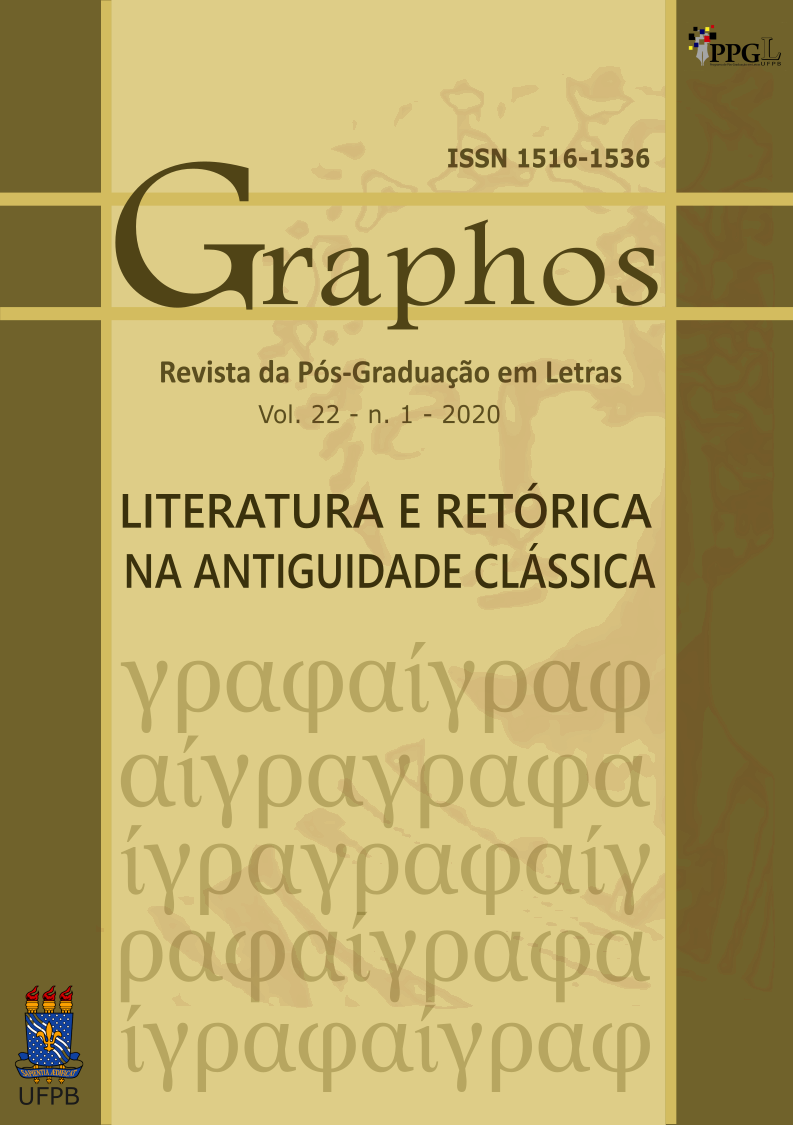
Literature and Rhetoric in Classical Antiquity
Vol. 22 No. 1 (2020)In classical Greco-Roman antiquity, there is nothing expressed to justify a literary rhetoric or a rhetorical literature. If for rhetoric, through its discursive genres, the subject matter is well developed in terms of manuals, for literature they are scarce. The very term literature can be seen as anachronistic. Aristotle was already addressing the problem of a certain unnamed art (ἀνώνυμος, Poetics, 1447b9). Although rhetoric enjoyed a reputation not only among the Greeks, but also among the Romans, one must also admit that literature was already the object of criticism. The Platonic Republic, as well as the Aristotelian Poetics and Politics, are examples of a well-developed literary consciousness with regard to its object. The complexity of this criticism is reflected above all in the term used by the Greeks ποίησις, which covers not only the production of what we nowadays understand as poetry, but also other arts such as painting, for example. There does not seem to be a well-defined boundary even between the arts, since Aristotle himself uses painters in his comparisons with the poets; nor even between the types of poetry, notwithstanding the attempts at delimitation that were carried out by the philosophers above. On the other hand, it is undeniable that quotations from poets are found in Aristotle's Rhetoric in abundant form. The dialogue between the two spheres was already taking place by means of the examples cited. However, it is perhaps in the period of Roman rhetoric, with Quintilian, that some awareness between the shifting boundaries of literature and rhetoric was first evidenced in a concise manner. In his book X, of the Institution Oratory, he provides us with Theophrastus' opinion that "orators avail themselves much of the lesson of the poets" [Plurimum dicit confere Theophrastus lectionem poetarum, 27], "and from them they seek inspiration in things, elevation in words, all movement in affections, and expediency in characters [. .. ab his in rebus spiritus et in verbis sublimites et in adfectibus motus omnis et in personis decor petitur, 27]. He does not, however, fail to suggest a certain prudence to the speaker, since "poets are not to be followed by the speaker in everything, neither in the freedom of words nor in the excess of figures" [non per omnia poetas esse oratori sequendos nec libertate verborum nec licentia figurarum, 28]. It is clear that the problem is posed from the perspective of the border between Literature and Rhetoric. A border that wants to be mobile, without precise delimitation, changing. Facing this panorama, we propose as dossier the theme "Literature and Rhetoric in Classical Antiquity", with the intention of further promoting the encounter between these two regions. Finally, we urge contributors to understand the copulative "and" in the name of the dossier as a place par excellence between these demarcations. Organizers: Marco Valério Colonnelli (PPGL/UFPB) and Ticiano Curvelo Estrela de Lacerda (UFRJ)
This issue was supported by the Research Support Foundation (FAPESQ), Grant Term No. 045/2019.
-
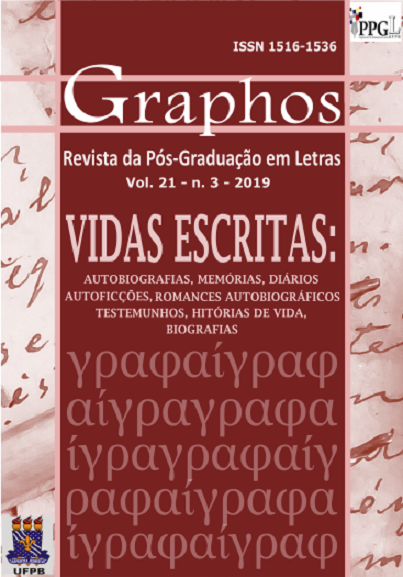
Writen lives: autobiografies, memories, diaries, autofictions, autobiographical novels, testimonials, life histories and biographies
Vol. 21 No. 3 (2019)From the 1960s on, specially from 1970, theoretical and critical studies of autobiographies have advanced in western literatures and has also been valued by readers and authors of this genre. Until then it had been underestimated (except for the classics), receiving only historical and testimonial value. The lack of a specific definition and the lack of literary acknowledgment made autobiography into a “miscellaneous”, which used to put autobiographies together with any novel, poem or drama that had, or seemed to have, autobiographical content. Fortunately, this changed in the last third of the century, when, in the Anglo-Saxon context and specially in France, the study of autobiographies received theoretical and critical attention. After works by James Olney, John Paul Eakin, Georges Gusdorf and Philippe Lejeune, among others, claims of literality started to be made for the genre, raising it to the same level as other fictional genres. Efforts were directed to the specificity of autobiographies, making it unique and different in relation to other literary registers and having Philippe Lejeune and his “autobiographic pact” as a decisive contribution. This dossier gathered researches of “self writing” in the field of (auto)biographical literature and has contributions from researchers from different universities.
This issue was supported by the Research Support Foundation (FAPESQ), Grant Term No. 045/2019.
-
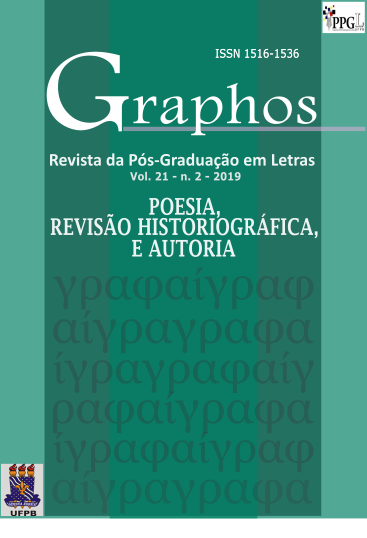
Poetry, historiographic review and authorship
Vol. 21 No. 2 (2019)This dossier aims to bring together studies that propose a review of Brazilian literary historiography, especially with regard to the poetic discourse. In general, this type of approach is delegated to the reflection on historical perspectives or to the delineation sketched by historians, when it is not left to primary sources in the direct collation of archives. Without disregarding such analytical procedures, it would also be appropriate to speculate on the constitution of the author's persona in the face of such reading expedients, whether its historiographical or editorial reception in comparison with the primary sources, or the one seen in the first editions or in the respective paratexts: cover, preface, illustrations, printings, dedications, epigraphs and everything else that can shed new light on the subject. Thus, considering that poetry is, par excellence, the literary genre in which subjectivity is most pronounced, it is of interest to investigate how the author construes himself/herself in this instance, as well as the artifacts he manipulates and that are not always considered on the occasion of his systematized reading, both critically and historiographically.
This issue was supported by the Research Support Foundation (FAPESQ), Grant Term No. 045/2019.
-
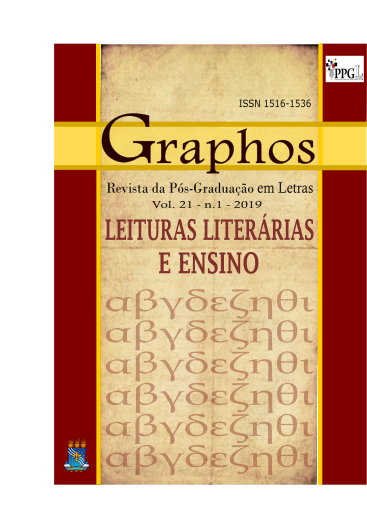
Literary Readings and Teaching
Vol. 21 No. 1 (2019)O dossiê Leituras literárias e ensino reúne um conjunto de artigos que abordam questões sobre a leitura literária em ambientes de formação e mediação da leitura, seus desafios no século XXI e suas possíveis alternativas de solução. Dessa forma, os artigos que compõem esse número se originam da coleta de dados bibliográficos e∕ou de campo que analisam, descrevem e socializam conhecimentos em torno da relação entre literatura e ensino, leitura literária e formação de leitores, espaços e mediação da leitura literária, formação de mediadores de leitura literária. Além disso, amplia o espaço de diálogo para análises comparativas e críticas de documentos oficiais e políticas públicas; estudo de obras literárias correlacionadas a relatos de práticas de trabalhos que vão desde a leitura interpretativa da ilustração às propostas com diferentes gêneros; e discussões sobre as condições de produção, acesso, circulação e apropriação de conhecimentos e materiais de leitura literária.
-
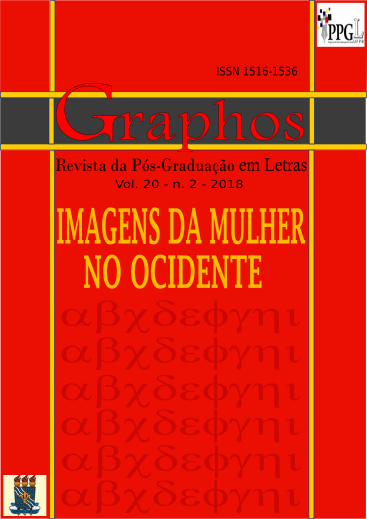
Images of Women in the West
Vol. 20 No. 2 (2018)Este dossiê reune textos que discutem a representação da mulher na literatura ocidental. Os artigos tratam a mulher como personagem em obras de autoria tanto masculina quanto feminina e analisam criticamente como as identidades femininas foram construídas ao longo da história ocidental. O objetivo foi trazer ao debate como tais construções afetaram a maneira como a mulher escrevia sobre si tendo o peso do patriarcado influenciando sua criatividade, como escritoras romperam tais barreiras e apresentaram novas formas de se dizer mulher. Foi de importância fundamental abordar como, na atualidade, mulheres negras, indígenas, lésbicas e trans se inserem no espaço desta construção identitária e da teoria da literatura de cunho feminista. Responsáveis pelo dossiê: Profa. Dra. Karine Rocha (UFPE); Prof. Dr. Sávio Fonseca (UFRPE)
-
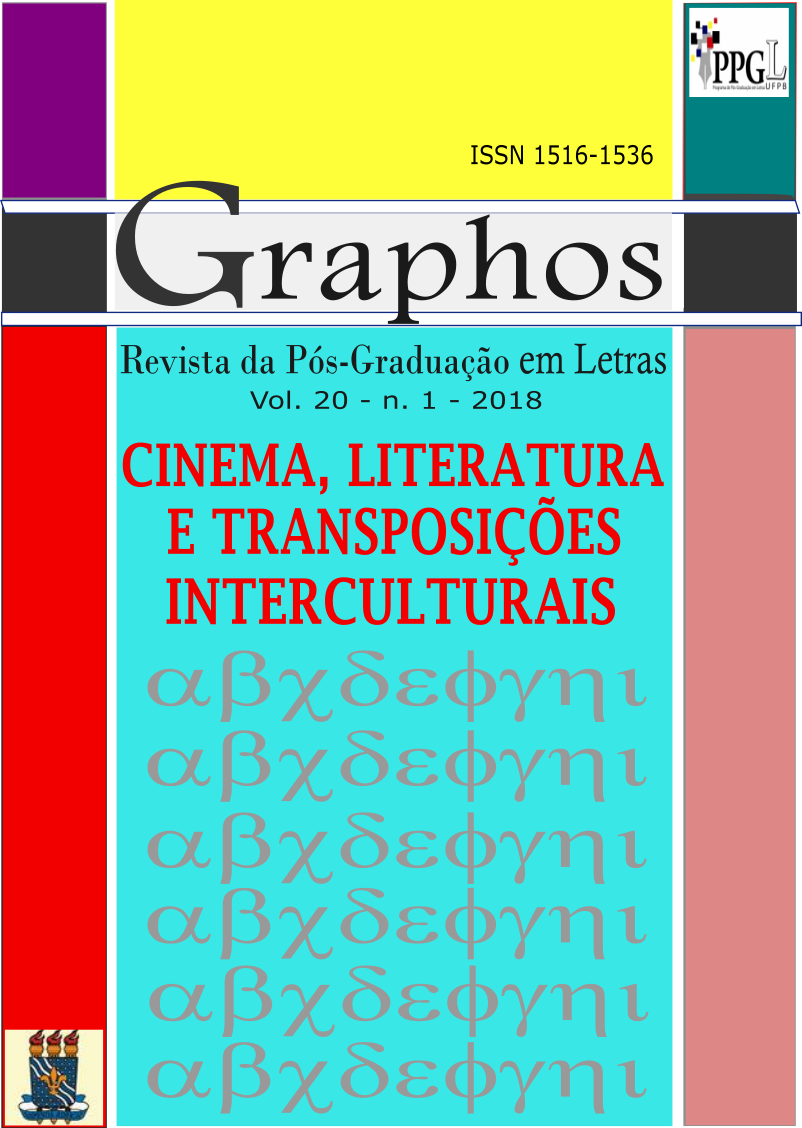
Cinema, Literature and Intercultural Transpositions
Vol. 20 No. 1 (2018)A chamada para o presente dossiê, intitulado “Cinema, literatura e transposições interculturais”, previa a reunião de textos que discutissem as diversas relações entre cinema, literatura e interculturalidade em articulação com o potencial subversivo e desestabilizador das narrativas. Foram acolhidos onze artigos no dossiê, além de uma contribuição na seção “Outros”, que refletem as diferentes formações acadêmicas de seus autores, incluindo estudos literários – crítica literária e literatura comparada; cinema e literatura; estudos linguísticos de discurso; jornalismo; comunicação e linguagens; filosofia e psicanálise; psicologia social da arte; educação e mediação de leitura. Tal diversidade é sintomática do caráter interdisciplinar do dossiê e das múltiplas abordagens do texto literário e fílmico, que aqui se revelam através do conceito de adaptação, de tradução e intermidialidade; em abordagem comparativa com a psicanálise; em discussões que ressaltam o teor político dos discursos; enfim, em olhares que enfatizam o dado político, poético e intercultural do corpus discutido.
-
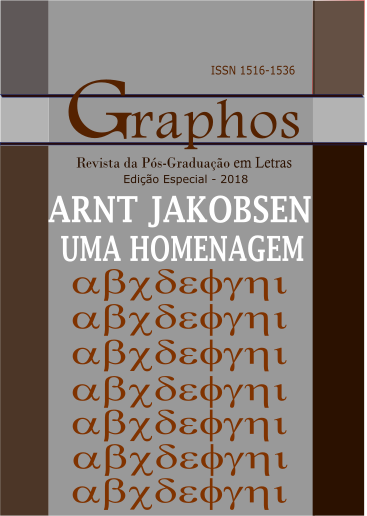
Special Edition, Translating translation process research: in honor of Prof. Dr. Arnt Lykke Jakobsen
2018Artigos traduzidos em homenagem ao Prof. Dr. Arnt Lykke Jakobsen


